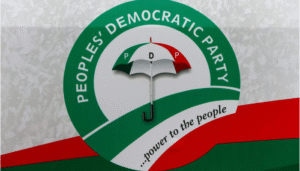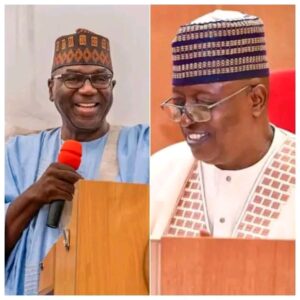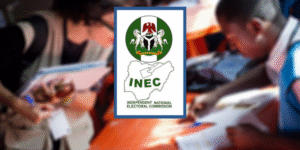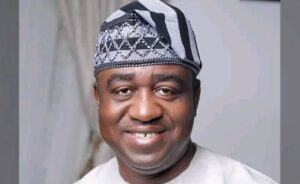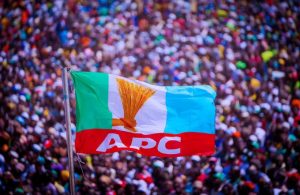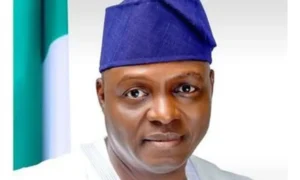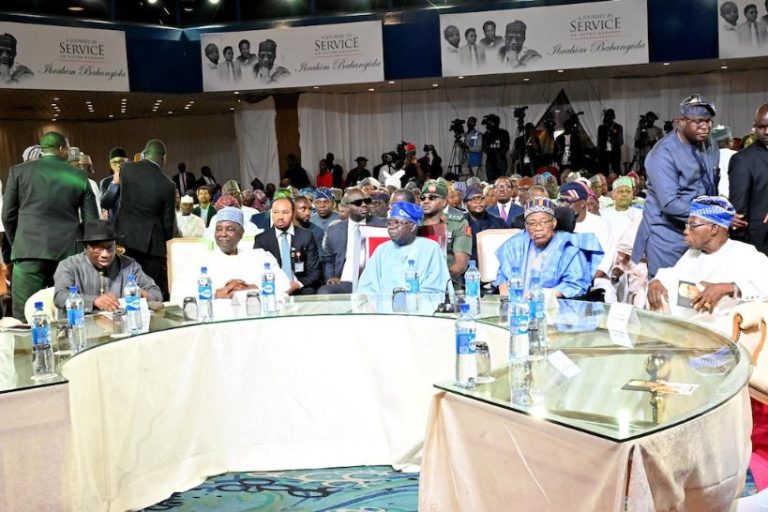
Folorunso Fatai Adisa
He carried the weight of a nation on his shoulders; however, his wealth couldn’t shield him from heartbreak. “My wealth is decreasing because my charities are increasing,” he sadly said. Bashorun Moshood Kashimawo Olawale Abiola once confided in his closest friend, as his son, Jamiu, recalled in The President Who Never Ruled. “My charities will not eliminate poverty, but my presidency will.”
These were not just words; they were the creed of a man who saw service as his life’s purpose. For MKO, Nigerians were not just voters, they were his people, his mission, his unfinished work. He believed evil thrives when good men stay silent, so against all odds, he refused to be silent.
Even so, they mocked him. “Why fight?” they sneered. “You have wealth, power, friends in high places.” But Abiola knew the weight of a stolen mandate. He could have walked away, lived in comfort, watched Nigeria sink. Instead, he walked straight into the fire.
They expected him to retreat, to barter his victory for peace. Instead, he roared. “June 12 is my mandate!” But power does not concede easily, and his defiance would cost him everything.
Bashorun was more than a businessman, he was a nation’s lifeline. The largest donor of foreign scholarships to Nigerian students. The biggest supporter of religious institutions. He was a philanthropist whose generosity knew no borders. Abiola’s reparation schemes reached thousands of Black people in the diaspora, and university libraries across Nigeria were stocked with books paid for from his pockets. Even my beloved elderly friend and a fellow Strathclyder, Mr Ghalib Fahad, shared a moving story of how MKO helped some needy Nigerian students at the University of Strathclyde in 1980.
Sadly, fate had a cruel irony in store for him. He thought he was saying farewell to poverty, but in reality, he was saying farewell to life. His campaign slogan, HOPE ’93, was meant to signal a new dawn, but instead, retrieving his stolen mandate turned into a hopeless dream.
Renowned columnist Sam Omatseye put history in perspective when he wrote:
“Before the presidential election of 1993, not many predicted that Abiola would be a transformational president. They merely saw him as the better of two candidates. He was a rich man with international reach. His opponent, Tofa the obscure, could not twirl a torch to the man with benevolent owl eyes, a grand stutter, and a capacity for bonhomie.”
Then came the betrayal. When General Babangida annulled the election, few believed Abiola would fight. They assumed he would fold, fall, and fade into luxury. But for a moment, his silence was deafening. And so, the vultures circled.
Some of his closest allies, the ones who ate from his table, who swore to defend his mandate, walked away. Some even called him a coward. As Sam Omatseye noted in one of his pretty and pithy pieces, Femi Falana was miffed at his proverbs, and said they were words of a coward too. “You cannot clap with one hand,” they said. “You cannot shave a man’s head in his absence.”
Then came the final betrayal. His allies had trusted General Oladipo Diya, who promised that once Abacha settled into power, Abiola’s presidency would be restored. But it was all a well-rehearsed lie. Once the game became clear, Abiola stood his ground. But by then, the doors had closed, the iron bars had locked, and the air had grown too thin for hope.
They broke him not with guns, but with deception. The bullets of his enemies never touched him, but the daggers of his friends? They tore through his soul. The men he trusted sat in secret rooms, traded his fate like merchants at a market, and when he cried for justice, they whispered, “Let him die in silence.”
Today, somewhere in Nigeria, some of those who once stood beside him, who vowed to restore his stolen mandate, sit at tables of power with the very people who betrayed him.
What a journey of betrayal they have carved into his legacy.
#Adisa

![[OPINION] Kwara 2027: This Pendulum](https://newsbulletin.com.ng/wp-content/uploads/2026/02/1770158918740-300x300.jpg)
![[OPINION] Ilorin Is Not Number Two; And Never Will Be](https://newsbulletin.com.ng/wp-content/uploads/2026/02/1770158569862-300x200.jpg)
